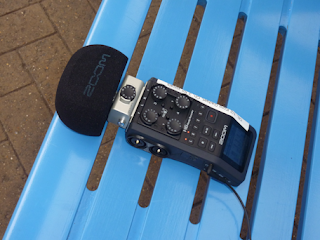I went into this set of lyrics expecting to re-work them much more ruthlessly than I ultimately did. I think that might be because, in the original version, there's one line (in the first verse, no less) that disproportionately jumps out at me as cringe-inducing:
"And I have to work the day to get my bread"
In the context of this song, I have two big problems with that line. The first is that not all work is created equal: in the years since the Escapades, I've become much more aware of how fortunate my peers and I are to have not been born in, say, a coal-mining town around 1890 or so. The second is that it brazenly ignores the non-financial reason why work - be it paid or not - is important: keeping oneself at least somewhat busy is paramount to good mental well-being. There's a reason why it is so common for people's health to go into a sharp decline right after retirement.
The other bit I've always thought was awkward is the "B" section (which appeared twice in previous versions of the song, but won't this time). Again the problems hinge on one line:
"I knew the day would come"
If we take this song to be a metaphor for the longed-for end of hard times, then this line clashes with the reality of how painful it is when you don't know if (let alone when) things will get better. Moreover, as the later stages of the COVID-19 era illustrate so vividly, finding one's feet emotionally after such a season is extremely challenging in its own right. (This does, as it happens, beautifully contextualize the dark, instrumental "C" section!) Therefore, I started by re-writing the "B" section with this in mind, before turning my attention elsewhere.
While the "B" and "C" sections treat the titular island as a metaphor, the "A" sections are a far more literal musical postcard. I left the chorus completely unaltered, but revised the verses with (as it happens) a recent visit to the real-life place fresh in my mind. I also added a new third verse, replacing the repeat of the first that, in previous versions, was yet another factor in the last 3 of this piece's 9 minutes being ludicrously anticlimactic.
I'm tired of all the noises of my home,
Where I'm lost in my head,
And I fight every day to get my rest.
Can't you find a way to escape?
So take the train from home tonight,
And all around's the morning light,
Come with me,
And I'll show you a faraway island where you can be free.
The sun is brighter there, the woods are green,
And the clear river flows,
And the rocks lead the way to the calm of the soul.
Not to go, you'd be a fool.
So take the train from home tonight...
Did you know the day would come
When the island appears on the skyline
And we'd see the death of the scapegoat?
Now we face a new unknown
But the island's a place where we listen
For a guide watching from the sky.
So take the train from home tonight...
[section "C"]
And so the love I'm feeling all around
Stills the undying storm,
And at last all my thoughts are on solid ground.
Can I find a way to bring it home?
So take the train from home tonight...
Somehow, until now I haven't mentioned the biggest difference in my lyrical approach between the Escapade era and the present day. That is, I no longer try to force rhymes. I now think it's much better to have effective imagery that doesn't rhyme, rather than contrived imagery that does. And if I can come up with a good rhyme, that's a bonus.
(I love the irony of how the poem that inspired "Modern Art" - the song that started this entire saga - pokes fun at poems that don't rhyme.)




